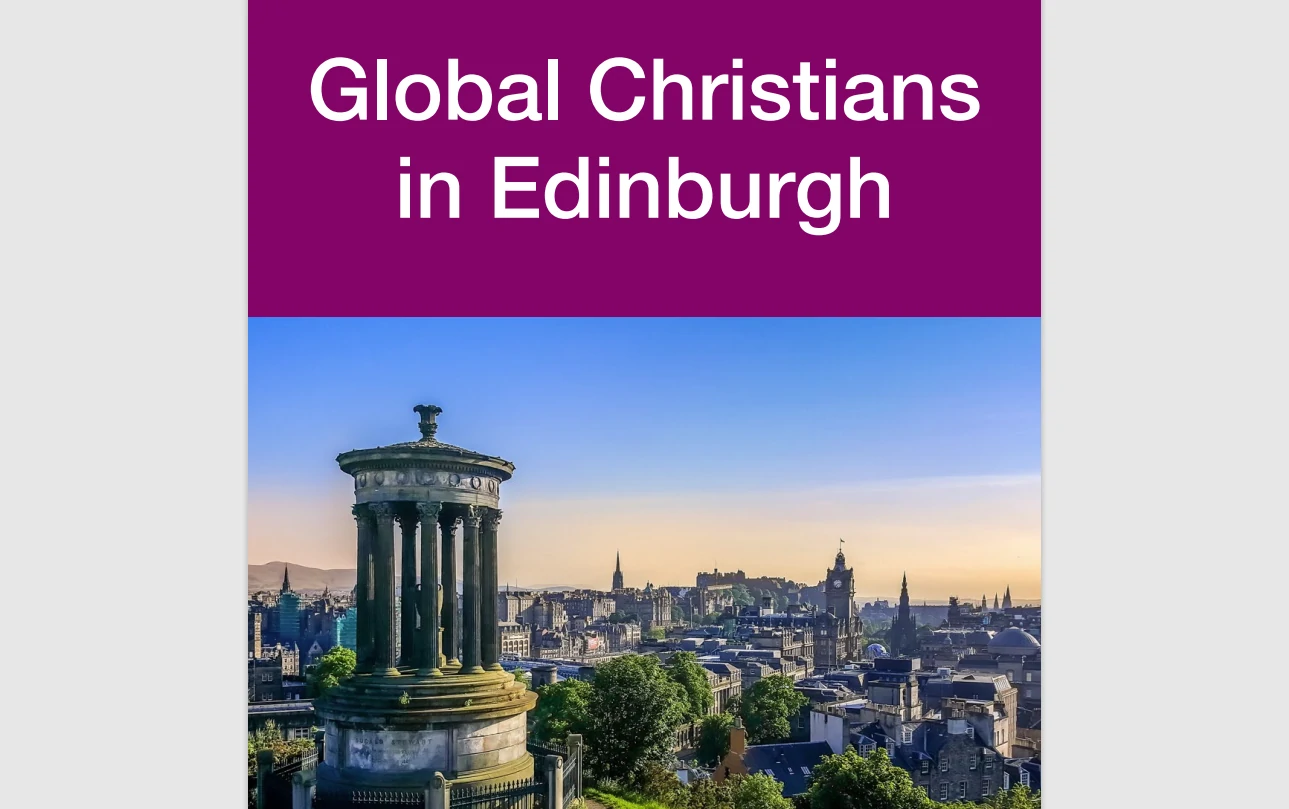Report shows the diversity and vitality of Edinburgh’s many ethnic minority Christian churches
The Edinburgh University School of Divinity has published a new report giving an insight into the many ethnic minority churches in the city. At a time when many traditional denominations and congregations within the city have seen a downturn in numbers, churches made up of those whose roots are from outside the UK have been growing strongly. Migrants coming from Africa, Asia, Latin America, Oceania and others parts of Europe have resulted in the creation of new fellowships, sub congregations and worship services/mass within the city of Edinburgh.
There are 20 plus Nigerian- heritage Pentecostal churches in the city. There are also seven Chinese or Hong Konger churches, six Indian communities (Baptist, Orthodox and Pentecostal), three Fijian communities, two Romanian churches. Several Roman Catholic parishes use different vernacular language styles- African and Caribbean mass, Filipino mass and Polish mass.
The July report is the work of two professors at the University’s Centre of Study of World Christianity - Alexander Chow, Senior Lecturer in Theology and Emma Wild-Wood, Professor of African Religions and Global Christianity - in collaboration with one PhD student, Nuam Hatzaw. It was carried out over a six-month period.
The July report is the work of two professors at the University’s Centre of Study of World Christianity - Alexander Chow, Senior Lecturer in Theology and Emma Wild-Wood, Professor of African Religions and Global Christianity - in collaboration with one PhD student, Nuam Hatzaw. It was carried out over a six-month period.
They held interviews with a range of church leaders to get a greater understanding of the life, aims and values of global churches in the city. They interviewed for example:
• A pastor of a non-denominational Chinese evangelical church operating in Cantonese, Mandarin, and English.
• A Catholic priest who conducts monthly Filipino mass.
• A pastor of a non-denominational Korean church with a Presbyterian background.
• A pastor of a Neo-Pentecostal church connected to a denomination started in Nigeria, but with aims to reach people from all backgrounds.
• A pastor of a Spanish-speaking sub-congregation of a mainstream Scottish denomination.
The report stated that many of the leaders of ethnic churches:
‘Recognised practical challenges in operating their communities, such as the lack of permanent venue [for church services], unstable income, and transient population. There were also many [strong points to their churches], such as the value of involving the laity, a posture of passion and innovation... No group wanted to exist in isolation. All desired to connect with other ministries. However, those they engaged often responded with reticence or even rejection. They also sought to serve beyond simply ‘spiritual’ needs and engaged in a range of societal concerns.’
Much more insight into the life of the global churches in Edinburgh by reading the report which can be found at:
http://www.cswc.div.ed.ac.uk/2023/07/global-christians-in-edinburgh/
• A pastor of a non-denominational Chinese evangelical church operating in Cantonese, Mandarin, and English.
• A Catholic priest who conducts monthly Filipino mass.
• A pastor of a non-denominational Korean church with a Presbyterian background.
• A pastor of a Neo-Pentecostal church connected to a denomination started in Nigeria, but with aims to reach people from all backgrounds.
• A pastor of a Spanish-speaking sub-congregation of a mainstream Scottish denomination.
The report stated that many of the leaders of ethnic churches:
‘Recognised practical challenges in operating their communities, such as the lack of permanent venue [for church services], unstable income, and transient population. There were also many [strong points to their churches], such as the value of involving the laity, a posture of passion and innovation... No group wanted to exist in isolation. All desired to connect with other ministries. However, those they engaged often responded with reticence or even rejection. They also sought to serve beyond simply ‘spiritual’ needs and engaged in a range of societal concerns.’
Much more insight into the life of the global churches in Edinburgh by reading the report which can be found at:
http://www.cswc.div.ed.ac.uk/2023/07/global-christians-in-edinburgh/




